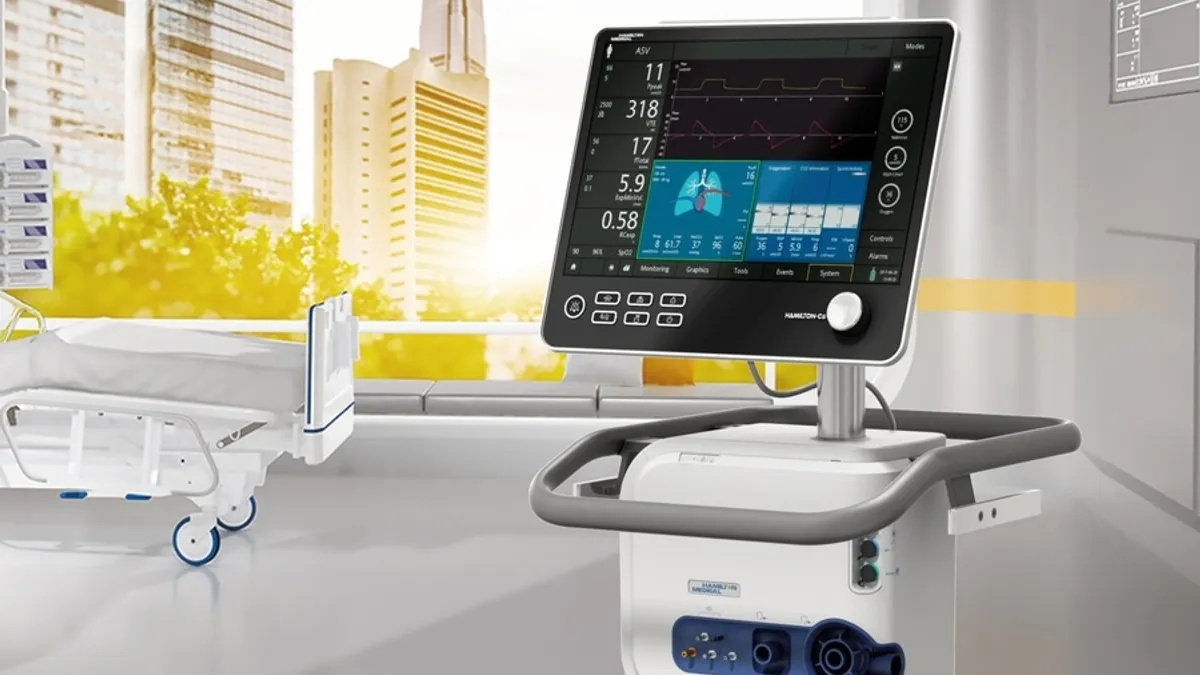The Food and Drug Administration has classified recalls by Hamilton Medical and Intera Oncology as Class I events, assigning the actions to its most serious risk category in light of the potential for serious injury or death.
Hamilton contacted users of its Hamilton-C6 Intensive Care Ventilator in June after receiving complaints that revealed a hardware issue. In affected devices, the status indicator board may become loose, allow water to enter and cause the ventilator to have a technical fault. The devices may revert to a safety ventilation mode or to an ambient state, depriving patients of assistance or support from the machine.
If the ventilator enters an ambient state, healthcare professionals must immediately provide an alternative source of ventilation to prevent patients suffering outcomes including lack of oxygen to the brain and a buildup of carbon dioxide in the blood. Hamilton has received 128 complaints globally but no reports of injuries or deaths associated with the issue.
The company is advising the users of the 497 ventilators covered by the recall in the U.S. to check if their status indicator boards have become loose. Users with loose status indicator boards should inform their distributor immediately. The front housing will then be replaced to prevent water entering the device.
Intera initiated the recall of its 3000 Hepatic Artery Infusion Pump in July in response to reports that the devices were delivering medications faster than expected. The fast flow rate could cause a patient to receive too much of a medication at one time, potentially leading to hematologic or neurologic toxicity. Patients may also use up their medicine prematurely, allowing their disease to progress.
The recall of 440 devices in the U.S. follows the submission of reports of three incidents related to the issue. Intera is yet to learn of any injuries or deaths caused by the flow rate problem. To mitigate the risk, the company is asking customers to monitor the flow rate and for liver toxicity.
If the altered flow rate cannot be managed by adjusting dosing, physicians should consider replacing the pump. Intera is advising physicians to consider bringing patients in for medication refills and to verify the flow rate less than every two weeks if the pump appears to be flowing more than 15% outside of the labeled specification










